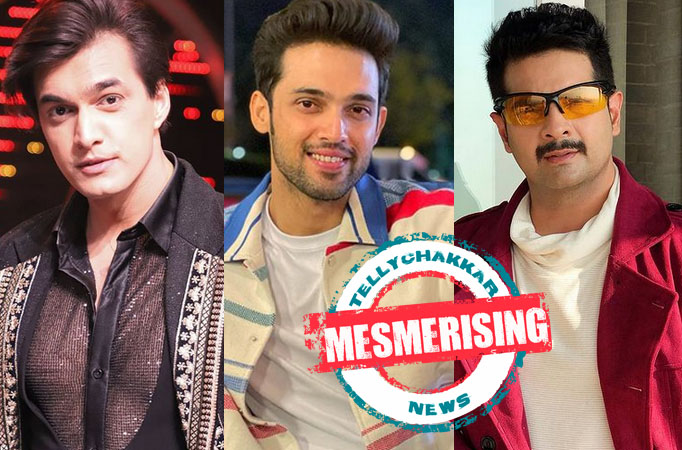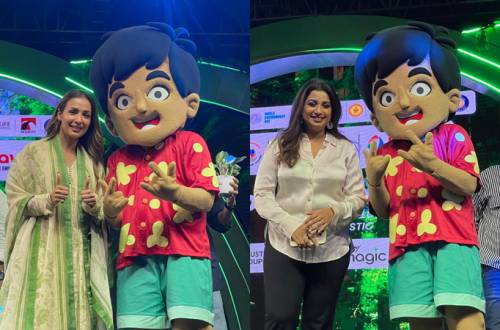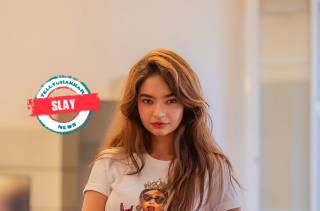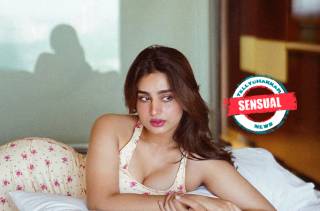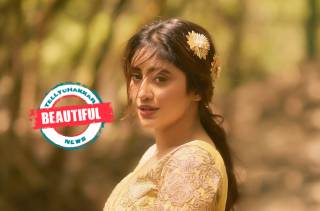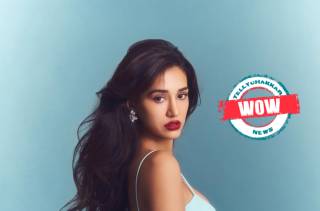MUMBAI: Indian culture always had an extremely tight grip on it's citizen's lifestyle patterns, making it pretty reflectively visible in the global scenario. Every little activity, habit, occupation, tradition, ritual, art and craft, food, clothes, hierarchy norms, educational pattern and language depict the cultural flow of a cultural society's progress.
Talking about India, diversity in every sub-quarters of these individual aspects are visibly present in almost every corner of the country. This is the country known to be culturally most diverse despite following Hinduism traditions at large. The existence of innumerable dialects, dressing attires and styles, various flavours and food, preferences and rules that are different and distinctive from one corner to another is quite beautifully complicated, especially when one realises how these differences are bonded together by the threads of unity.
However, despite these differences, it's interesting to note that the thread of unity that binds these together is the existence of mainstream beliefs, that are normative and similar throughout the country, e.g. maintenance of long hair for girls, marriage at a young age, patterns of head coverage at particular timings of the day or at different events and occasions (which are definitely different from state to state), the need to pray (despite the existence of distinct timings and techniques to perform the same), full-body coverage with garments (that vary from region to region), intra-community integrity, etc.
To be noted, most of these facts noted above were predominantly practised in the past at large, however, some of the deep-seated beliefs and rituals have a long lifeline to function actively even today.
Also Read: Congratulations: Varun Sood is the Instagram King of the week!
According to the Hindu rituals, for individuals/ families performing yagyas or any sacred rituals (like those related to marriage), it's essentially required for it's practitioners and active participants to keep their heads covered with a veil or a fabric cloth.
Hence, during Hindu marriages, both the brides and grooms can be seen coving their heads with a heavy or an expensive fabric's cloth/ decorated veil and even the priest is seen covering their heads with a cotton cloth. However, this is also observed being pretty standard for marriages across various institutions of faith and religion (especially for women).
While women use decorated veils in different colours that match with their bridal ensemble, the men are seen folding or draping their fabric in the forms of turbans called 'pagdis' to cover up their heads as well. Also by keeping these norms and rituals aside, a groom looks complete only after they put on their pagdis and sehra (a removable curtain of flowers that's tied around their forehead to keep their faces covered throughout the event).
What makes the local cultural look stand out is the nature of drapery, which is different from region to region. A similar factor of all groom pagdis from various regions is that just like the bride's veils, even the groom can decorate their pagdis/ turbans with metal accessories like brooches of precious metals and valuable gems.
This is one norm grooms happily agree to settle with on their special day as the current situation does not facilitate an individual to endorse these hefty attires and accessories daily. Also, Hindi serial viewers take a lot of inspiration from the telly actors who often dress up like either a groom or a barati on-screen and flaunt various colours and patterns of pagdis as a part of the event's ensemble.
Without any further delay, take a look at the popular telly hunks and actors like Mohsin Khan, Krishna Kaul, Karan Mehra, Parth Samthaan, Shaheer Sheikh, Nakuul Mehta, Arjun Bijlani, Dheeraj Dhoopar, Karanvir Sharma and lastly, Arhaan Behl, who looks their best in a wedding event's ensemble (either as a groom or a barati) and are seen mandatorily flaunting their gorgeously decorated pagdis (turbans).
Scroll down below:
Mohsin Khan
[[{"fid":"15902399","view_mode":"default","fields":{"format":"default","alignment":"","field_file_image_alt_text[und][0][value]":false,"field_file_image_title_text[und][0][value]":false},"link_text":null,"type":"media","field_deltas":{"1":{"format":"default","alignment":"","field_file_image_alt_text[und][0][value]":false,"field_file_image_title_text[und][0][value]":false}},"attributes":{"height":637,"width":500,"class":"media-element file-default","data-delta":"1"}}]]
Mohsin looks totally like a 'Royal Rajput prince' in this groom's attire and especially that golden turban being decorated with dangling pearl chains that are attached to his central rhinestone brooch.
Krishna Kaul
[[{"fid":"15902409","view_mode":"default","fields":{"format":"default","alignment":"","field_file_image_alt_text[und][0][value]":false,"field_file_image_title_text[und][0][value]":false},"link_text":null,"type":"media","field_deltas":{"2":{"format":"default","alignment":"","field_file_image_alt_text[und][0][value]":false,"field_file_image_title_text[und][0][value]":false}},"attributes":{"height":398,"width":389,"class":"media-element file-default","data-delta":"2"}}]]
Krishna's pagdi is simpler with a more simple central brooch supporting two pearl strands sideways. However, his pagdi's red colour is his entire ensemble's statement.
Karan Mehra
[[{"fid":"15902419","view_mode":"default","fields":{"format":"default","alignment":"","field_file_image_alt_text[und][0][value]":false,"field_file_image_title_text[und][0][value]":false},"link_text":null,"type":"media","field_deltas":{"3":{"format":"default","alignment":"","field_file_image_alt_text[und][0][value]":false,"field_file_image_title_text[und][0][value]":false}},"attributes":{"height":472,"width":389,"class":"media-element file-default","data-delta":"3"}}]]
As Naitik Singhania on-screen, actor Karan's turban is a typical high-end Marwari-style pagdi.
Parth Samthaan
[[{"fid":"15902429","view_mode":"default","fields":{"format":"default","alignment":"","field_file_image_alt_text[und][0][value]":false,"field_file_image_title_text[und][0][value]":false},"link_text":null,"type":"media","field_deltas":{"4":{"format":"default","alignment":"","field_file_image_alt_text[und][0][value]":false,"field_file_image_title_text[und][0][value]":false}},"attributes":{"height":637,"width":500,"class":"media-element file-default","data-delta":"4"}}]]
Parth's totally looking dapper in this green chanderi pagdi. However, his dangling gold brooch is definitely his ensemble's statement jewellery.
Shaheer Sheikh
[[{"fid":"15902439","view_mode":"default","fields":{"format":"default","alignment":"","field_file_image_alt_text[und][0][value]":false,"field_file_image_title_text[und][0][value]":false},"link_text":null,"type":"media","field_deltas":{"5":{"format":"default","alignment":"","field_file_image_alt_text[und][0][value]":false,"field_file_image_title_text[und][0][value]":false}},"attributes":{"height":329,"width":287,"class":"media-element file-default","data-delta":"5"}}]]
In a golden-brown simple pagdi, Shaheer looks dapper as a barati with no ornament attached to it. At times, it's usually the groom who's seen decorating their pagdis with brooches or individuals might not opt to wear them to avoid personal discomfort. Afterall, nothing's fashionable enough if comfort ain't fed well.
Nakuul Mehta
[[{"fid":"15902449","view_mode":"default","fields":{"format":"default","alignment":"","field_file_image_alt_text[und][0][value]":false,"field_file_image_title_text[und][0][value]":false},"link_text":null,"type":"media","field_deltas":{"6":{"format":"default","alignment":"","field_file_image_alt_text[und][0][value]":false,"field_file_image_title_text[und][0][value]":false}},"attributes":{"height":637,"width":500,"class":"media-element file-default","data-delta":"6"}}]]
Talking about fashion-woke grooms with a contemporary taste over traditional looks, Nakuul's look herein is a perfect example. Flaunting a floral turban his way with that side-brooch attached on it, that too on one's wedding day is a challenging call that surely garners most of the attention for it's creativity. Grooms these days are seen dressing up this way to abide by the codes of their creative theme-weddings
Arjun Bijlani
[[{"fid":"15902459","view_mode":"default","fields":{"format":"default","alignment":"","field_file_image_alt_text[und][0][value]":false,"field_file_image_title_text[und][0][value]":false},"link_text":null,"type":"media","field_deltas":{"7":{"format":"default","alignment":"","field_file_image_alt_text[und][0][value]":false,"field_file_image_title_text[und][0][value]":false}},"attributes":{"height":401,"width":235,"class":"media-element file-default","data-delta":"7"}}]]
Arjun's flaunting a dual-coloured pagdi herein. The strip of red fabric has been used along it's visible hemline herein, thus helping define both the look and the drapery of the pagdi. To combine the contrast, a rhinestone brooch with rubies embedded upon it has been attached diagonally, just below the peak knot.
Dheeraj Dhoopar
[[{"fid":"15902469","view_mode":"default","fields":{"format":"default","alignment":"","field_file_image_alt_text[und][0][value]":false,"field_file_image_title_text[und][0][value]":false},"link_text":null,"type":"media","field_deltas":{"8":{"format":"default","alignment":"","field_file_image_alt_text[und][0][value]":false,"field_file_image_title_text[und][0][value]":false}},"attributes":{"height":637,"width":500,"class":"media-element file-default","data-delta":"8"}}]]
Dheeraj's turban is again a barati-styled blue pagdi whose key features are it's weight and drapery; with that rhinestone brooch being his ensemble's statement jewellery. To note, the drapery is very different as compared to the authentic pagdis (as seen above) as the fabric's draped folds are visible from the other side.
Karanvir Sharma
[[{"fid":"15902479","view_mode":"default","fields":{"format":"default","alignment":"","field_file_image_alt_text[und][0][value]":false,"field_file_image_title_text[und][0][value]":false},"link_text":null,"type":"media","field_deltas":{"9":{"format":"default","alignment":"","field_file_image_alt_text[und][0][value]":false,"field_file_image_title_text[und][0][value]":false}},"attributes":{"height":568,"width":347,"class":"media-element file-default","data-delta":"9"}}]]
How to combine the traditional with the contemporary groom look - do it the 'Karanvir way'. He can be seen donning a pagdi of a costly sheer fabric that mostly goes into the making of contemporary and fusion garments. Also, his golden brooch with loosened pearls adds to the traditional quotient of his look.
Arhaan Behl
[[{"fid":"15902489","view_mode":"default","fields":{"format":"default","alignment":"","field_file_image_alt_text[und][0][value]":false,"field_file_image_title_text[und][0][value]":false},"link_text":null,"type":"media","field_deltas":{"10":{"format":"default","alignment":"","field_file_image_alt_text[und][0][value]":false,"field_file_image_title_text[und][0][value]":false}},"attributes":{"height":358,"width":267,"class":"media-element file-default","data-delta":"10"}}]]
Lastly, the traditional Jatt groom look is totally impossible to achieve without going the way Arhaan has. Not much goes here into elaborating the details, just a bold maroon pagdi to contrast his lower ensemble and the dangling brooch attached partially sideways.
Also Read: Congratulations: Anushka Sen is the Instagram Queen of the week!
Source: Instagram and Internet








